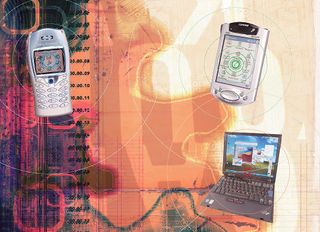Business take up 3G applications at last
Business decides to stop looking for the killer 3G application and concentrate on developing low cost applications

There has been a surge in business interest in 3G applications over the last quarter, a number of analysts have reported.
Research company IDC's recent Worldwide Mobile Phone Tracker, which predicted that the mobile phone industry will ship close to one billion basic units in 2006, also detected a major rise in interest in mobile devices capable of applications like video conferencing, internet access at broadband speeds and real-time content sharing.
Quocirca analyst Rob Bamforth said that his own organisation's research had picked up on a big growth in business interest in 3G compared with a year ago, but believes most of that interest is centred on upgrading laptops with 3G data cards.
"This is an easy way for corporates to benefit from 3G, as enabling an existing base of laptops for 3G is a relatively small jump from an IT management perspective," he said.
While many businesses have yet to progress beyond 2G applications, like mobile email, other are starting to relish the possibilities of high bandwidth on the move, said Bamforth.
Mobile operators have been working with the PC industry to capitalize on this interest. Vodafone has recently signed a fourth PC vendor to build next generation functionality directly onto the laptop motherboard. HP has just joined Acer, Dell and Lenovo in offering laptops with embedded Vodafone super-3G technology.
"With connectivity built into the laptop, no IT department or user action is required," said John Lillistone, head of enterprise data with Vodafone in the UK.
Get the ITPro. daily newsletter
Receive our latest news, industry updates, featured resources and more. Sign up today to receive our FREE report on AI cyber crime & security - newly updated for 2024.
"There are no incompatibilities, and you get faster and more reliable applications. Embedded 3G broadband marks a significant step forward in the user experience. What it offers rivals the office-based broadband experience."
Many application developers also believe that the time is right to launch B2B products and services that take advantage of 3G. Radvision, a developer of IP-based video conferencing products, is about to launch a PC-to-mobile videoconferencing gateway which allows instant, interactive communication between 3G handsets and 2G video-enabled IP terminals and desktops.
"There are a lot of ways businesses can benefit from a phone to PC video platform," says Alon Barnea, general manager of Radvision's Mobile Business division.
"If you've sold someone a car, you can send short video clips to their mobile showing them how different features work. A business manager on the road can have an impromptu video conference with their team from anywhere. It's billed as a normal call. Call centre operatives can interactively exchange information with customers. You can even have video call waiting if they're held in a queue."




